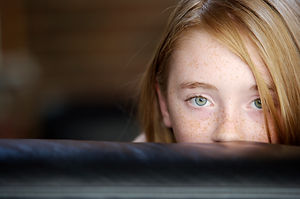
Trauma and attachment informed family placements for children and young people with complex needs


Therapeutic approach & The Phoenix model

Understand the child The first challenge for the therapeutic foster carer is to understand the devastating impact that developmental trauma has on children and young people. This affects everything from the child’s ability to control their own emotions to being able to think, learn, and respond to other people. Understanding the child doesn’t necessarily make dealing with their distress or behaviours of concern easier, but it can help the carer to keep things in perspective, and to respond to the child in the most effective ways to achieve change and progress. Understanding the history of your foster child can contextualise their difficulties, and give you insights into how best to go about building their relationship with you, which is the foundation of their recovery.
Understand yourself One of the most challenging aspects of becoming a therapeutic foster carer is the ability to understand yourself. Although this sounds easy, truly having the ability to professionally reflect on the way you and your family respond to living with a traumatised child will require significant emotional intelligence, resilience and insight. Understanding yourself with regard to the transference and triggers that certain behaviours may evoke in you as a person, and being open enough to use our team to support a change of response is what sets our foster carers apart.
Therapeutic response Therapeutically responding to children involves creating a safe, nurturing, predictable environment, implementing and maintaining boundaries, and appropriately and consistently responding to both negative and positive behaviours. Carers need to be able to remain calm and emotionally regulated even when they might very naturally be feeling frustrated, angry or uncertain. We know from experience that the right responses work. You will receive a lot of training and support to help you do this, and it can be extremely rewarding when your hard work pays off!
Through the years of our combined experience, we have learned that children and young people who have been traumatised by abusive or inadequate early care do not respond to ordinary methods of parenting. This is why a model of therapeutic parenting is necessary to meet the needs of these children.
Most children are lucky enough to grow up in a safe, responsive, predictable environment, creating secure and mutually satisfying relationships with adult caregivers who love and nurture them. This type of environment has a profound impact on all areas of the child’s development, and provides the blueprint for the child’s future relationships, emotional and mental health, social and cognitive functioning.
Our children have not experienced this kind of foundation to their early lives. Their environments and caregivers were often frightening, chaotic, rejecting and inconsistent, and unable to meet their most fundamental needs. Many of our children have learned, through experience, that the world is a dangerous place, populated with unpredictable and potentially dangerous adults.
The effects of this on every area of their development and functioning are just as profound. Our children have devoted all of their energies to survival, not the exploration and pleasure in the world that most children experience. They have learned to actively avoid and reject attempts by others to create meaningful relationships with them. They often view the world with deep mistrust and anger, and act as if everything around them poses a potential threat.
This is the challenge you are faced with when a traumatised child enters your household, and you may be presented with a range of problematic and upsetting emotional and behavioural difficulties.
This is where your job as a therapeutic foster carer begins.
At Phoenix, the model we work to is not restricted to one therapeutic theory or approach. We are constantly learning about trauma, attachment, neurological development and the benefits of a variety of interventions with damaged children.
Our model does have a strong affiliation with dyadic developmental psychotherapy (DDP) and practice, and our staff and foster carers receive continuous training in DDP and the PACE model of parenting.
This approach is family-based and is designed to help children achieve a sense of trust and safety, develop secure and positive attachments to their carers, promote recovery from trauma and the accompanying benefits in the child’s social, emotional and educational life. Training and practice in compatible treatment methods such as Theraplay is also used by the agency.